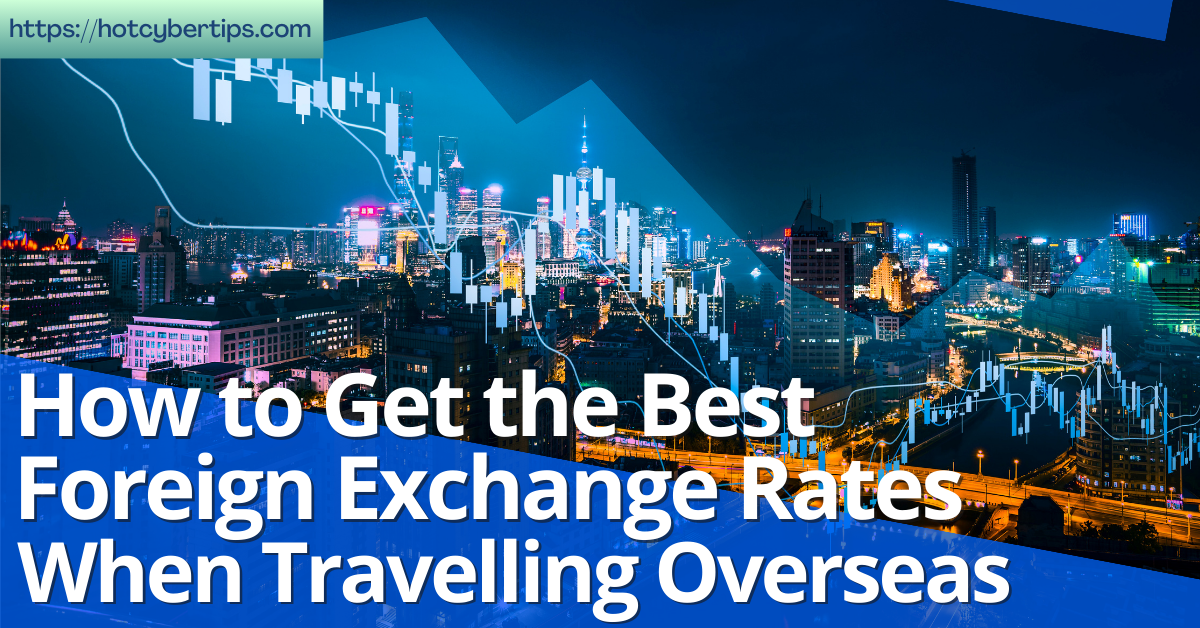
There are many steps to getting the best foreign exchange rates when travelling overseas. It begins by doing your research. Check out online and printed material for foreign exchange, local economic conditions, and travel tips. If a local area is struggling economically, it might offer you better foreign exchange rates. Compare the local currency price over a year to see how dramatically the currency exchange rate changes.
Exchange rate research will provide you with a solid reference point. People will be less likely to scam you when they realize that you are knowledgeable about foreign exchange rates. As you travel, continue to check the currency exchange rates in the newspapers or on the Internet.
Airports, ferries and trains
Airports, train stations, and ferries offer convenience, but usually have slightly higher foreign exchange rates. Another option is to check out the airport rates on the Internet; you can order the local currency online for a better rate and pick it up at the airport – combining convenience and price. Train stations and ferries will tend to have more limited hours of operations.
Banks
Exchanging your home currency for local currency before you travel is one viable option. In the country you visit, there will also be foreign exchange banks that serve individuals and businesses that need foreign exchange services.
Other Foreign Exchange Options
Some high-traffic tourist areas may have expensive foreign exchange rate services at smaller shops and larger stores.
Sometimes, hotels offer decent foreign exchange rates as a service to their customers. You could receive a money transfer while you are overseas; it is cheap, safe, and fast. The best foreign exchange rates can be found at banks and post offices. Gift cards or travellers cheques are also options.
Some local exchange services charge up to 25% for currency exchange. Shop around, compare two to three rates before completing your foreign currency exchange transaction.
Foreign Exchange Brokerage
Foreign exchange brokerage firms buy currencies in large volumes at attractive rates. These highly-trained professionals are experts at trading international currencies. They usually offer better rates than banks, but also have higher fees.
Different Foreign Exchange Rates
You might run into a number of different rates: “official,” “local,” “market,” “buy,” and “sell.” Be careful, some shops will quote one rate to attract your attention, then they will tell you that you only qualify for the higher rate.
When there is a “local” foreign exchange rate that is different than the government’s “official” rate, you can usually get a better deal. Some good rates only apply when large amounts are exchanged.
Credit Cards
Going through a bank for the foreign exchange rate can offer the best rates and lowest fees. When consumers use a debit or credit card, their banks will give them the same foreign exchange rate that banks charge each other. Some banks and credit card companies will charge fees of up to 3% on all purchases made with the currency.
Before you travel, do your research into your financial institution’s most current policies, rates, and fees for exchanging foreign currency.
Some travellers purchase a debit card, special credit card or cash passport card for voyages overseas with low or no fees on foreign exchange. These are safer than cash. Be careful, because these cards have special rules.
You can avoid some ATM fees by using your credit or debit card for large purchases – housing, travel and food.
Additional Fees
Many additional fees could be charged when you use a credit card overseas:
1. Foreign exchange “load” fee (currency conversion fee) 2. Cash withdrawal fee 3. Interest charge on balance 4. Handling fee.
There might be other commissions, surcharges, and fees that may apply. Flat rates and minimum amount restrictions might also apply. Calculate the net foreign exchange rate after all commissions are added. Be careful of “commission-free” offers because they will usually provide a less competitive exchange rate.
Beware of “dynamic currency conversion,” promises; vendors will offer to charge your fees denominated in your home currency, the AUD, while you are in physically in the foreign country. This might sound good, but the fees are usually excessively high. When in a new locale, you should get used to pricing everything in the local currency.
ATM
Automated Teller Machine (ATM) networks have grown worldwide. If you have an account with a major bank that is part of an extensive network, then you might be able to withdraw the local currency from the ATM wherever you go. This will allow the bank at home to perform the conversion.
The money you withdraw will be in the local currency. It is wise to withdraw larger lump sums because there might be a 1 to 3% ATM fee charged. There may also be a “daily withdrawal limit.”
You could check out ATM, credit card, or airline websites to see if their facilities are available where you go. There are frequently affiliations, combinations and linkages to large networks of financial services between these groups – for example, the American Express Qantas credit card.
Discuss all relevant rates and policies with your bank before you travel.
Exchange Rate Calculator
The Exchange Rate Calculator will help you calculate the “most competitive market rates” by finding the mid-point between buy and sell rates for large transactions. Exchange rates can change rapidly.
Having a small calculator can help you figure the exchange rate; it will also make you look more serious to others. You can also go onto the World Wide Web to find an Exchange Rate Calculator.
Tips for Getting the Best Foreign Exchange Rates When Travelling
Getting a small amount of the local currency before you travel makes sense since the local airport, bank, or exchange service might be closed when you arrive. You may need an emergency cash source for purchasing something en route: a snack, umbrella, or taxi ride.
Plan your budget ahead-of-time. Large cities will offer more options for foreign currency exchange. You will probably need to carry some local currency to smaller towns due to fewer foreign exchange options. Avoid exorbitant fees by planning ahead.
Local taxi drivers and hotel employees might know the best places for foreign exchange. If you must exchange one currency for another overseas, make sure you have a well-known currency that will be accepted in the locality you are visiting. Sometimes, wise locals might prefer to actually hold your well-recognized, “more convertible,” AUD rather than less-popular local currencies; they might give you a better rate.
Some currencies are not very valuable compared to your higher denominations of AUD. You might be required to bring a small bag to carry the local currency after exchange. Most countries still permit haggling, so show confidence and be patient.




